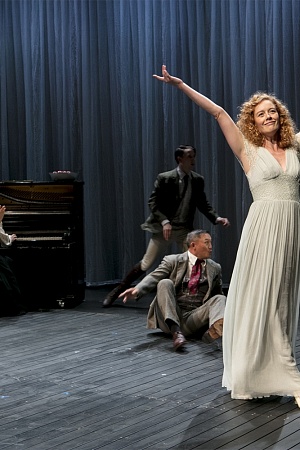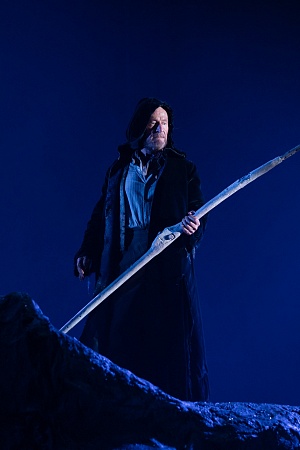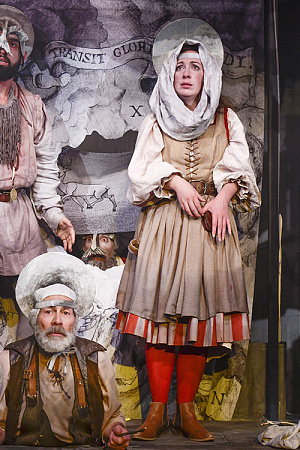Ghosts (Belvoir St Theatre) ★★★1/2
‘But I almost believe we’re all ghosts. Every one of us. Everything we do has already happened, everything that has happened is already in us. It all returns. Not just what we inherited from our parents. Everything. Dead ideas. Dead beliefs. Dead customs. Lodged in us. We cannot be free of them.’
When this production of Henrik Ibsen’s most controversial play was programmed, no one could have guessed how pertinent it would appear in Australia at this moment. On the surface, this account of a bourgeois woman whose attempt to escape from a loveless marriage and a philandering husband is foiled by the Pastor she loved and the conventions of the times, who has to live a lie and finally deal with a beloved son who has inherited syphilis from his father, is of another era. After all, there is now at last understanding and help for those leaving an abusive marriage, and her son’s disease would easily be cured. But Ghosts is about more than these afflictions. The protagonist, Mrs Alving’s, speech to her nemesis, the hidebound, reactionary Pastor Manders, quoted above, is the core of the play. As Robert Brustein writes, Ibsen’s ‘underlying purpose was to demonstrate how a series of withered conventions, unthinkingly perpetuated, could result in the annihilation not only of a conventional family but, by extension, the whole modern world’.
Continue reading for only $10 per month. Subscribe and gain full access to Australian Book Review. Already a subscriber? Sign in. If you need assistance, feel free to contact us.











Leave a comment
If you are an ABR subscriber, you will need to sign in to post a comment.
If you have forgotten your sign in details, or if you receive an error message when trying to submit your comment, please email your comment (and the name of the article to which it relates) to ABR Comments. We will review your comment and, subject to approval, we will post it under your name.
Please note that all comments must be approved by ABR and comply with our Terms & Conditions.